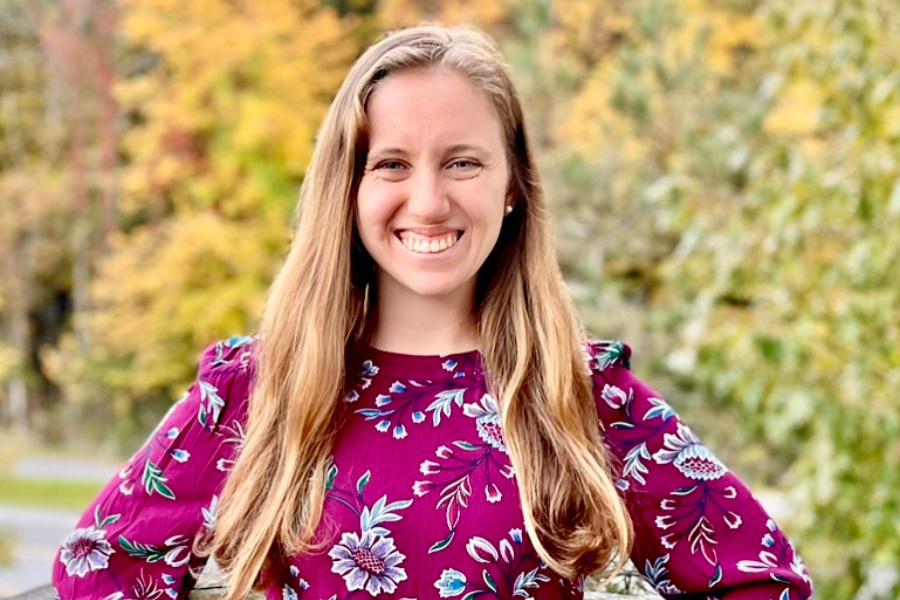Megan Moore

https://www.eoas.fsu.edu/about-us/giving/winchester-fund/"I love learning and challenging myself"
College: Arts and Sciences
Degree Program: Chemical Oceanography
Degree: Master's
Why FSU?
Dr. Robert Spencer is a very respected riverine biogeochemist who has extensive experience in the Arctic, which perfectly aligned with my research interests. I was able to secure a teaching assistant position, so I was able to support myself and pay for school while working for the Department of Earth, Ocean, and Atmospheric Science and avoid getting into debt to get my master's degree. Due to Tallahassee being the state capital as well, I was able to continue working part time for the state, which allowed me to continue to get valuable work experience while pursuing my degree. Furthermore, I got my undergraduate degree here, so I knew the transition would be smooth for me and allow me to focus on the research without getting settled in a new place first.
Motivation to pursue a graduate degree
Honestly, I wasn't entirely sure what I wanted to do after my undergraduate degree and took a gap year but still wanted more than an entry-level position that didn't feel fulfilling. I knew I was interested in the Arctic environment and decided I should do something that would intrigue me intellectually while building data analysis skills. I knew getting a chemical oceanography degree would allow me to narrow down what I enjoy doing for a career by broadening my skill sets. I would be able to spend time in the lab processing data and writing while taking specialized classes and maybe even get field work experience. By getting this immersive experience, I knew I would be able to narrow down what I wanted to do to fulfill myself occupationally.
Importance and/or impact of research and work
Arctic permafrost is thawing under climate change conditions and has varying impacts for the carbon cycle globally. In the Peel Plateau region, permafrost thaw slumps where the ground subsides under the decreased volume of ice thawing to liquid water, which mobilizes ancient compounds. In other regions, this material has been shown to be used by microbes preferentially, which could have a substantial impact on the source vs sink behavior of permafrost environments in the Arctic.
Career aspirations
Through pursuing my master's degree, I have decided I want to focus on corporate sustainability initiatives or working for a company that is expanding renewable energy options in the US. I believe that reducing per capita carbon emissions needs to be initiated by reducing the price of renewables by increasing the supply of renewable energy. I want to make a difference working my way up the ladder for a large company with values that align with mine.
Advice for anyone considering graduate school
I would recommend getting research experience in undergrad to get some basics skills that will transfer to your graduate school journey. I also believe staving off imposter syndrome is extremely important. Graduate school exists to teach you what you want to know. You are not expected to know everything on day one.
Accomplishments during graduate career
I went to Inuvik, NT, Canada, for field work experience which was a life-changing experience for me. Above and beyond the scientific learning that the journey was designed for, it was monumental in expanding my cultural horizons and giving me international work experience. The trip was challenging for me, and I have a great respect for the scientists who conduct field work annually. I also was the graduate student representative for the department chair search committee in 2021-2022, which provided me with valuable insights to the administrative workings of academia. Being the lead TA for the online intro to environmental science course for two semesters has given me management experience and really prepared me for life after graduate school. Lastly, I am a recipient of the John W. and Ellen M. Winchester Fund for Excellence in Earth, Ocean, and Atmospheric Geochemistry.
